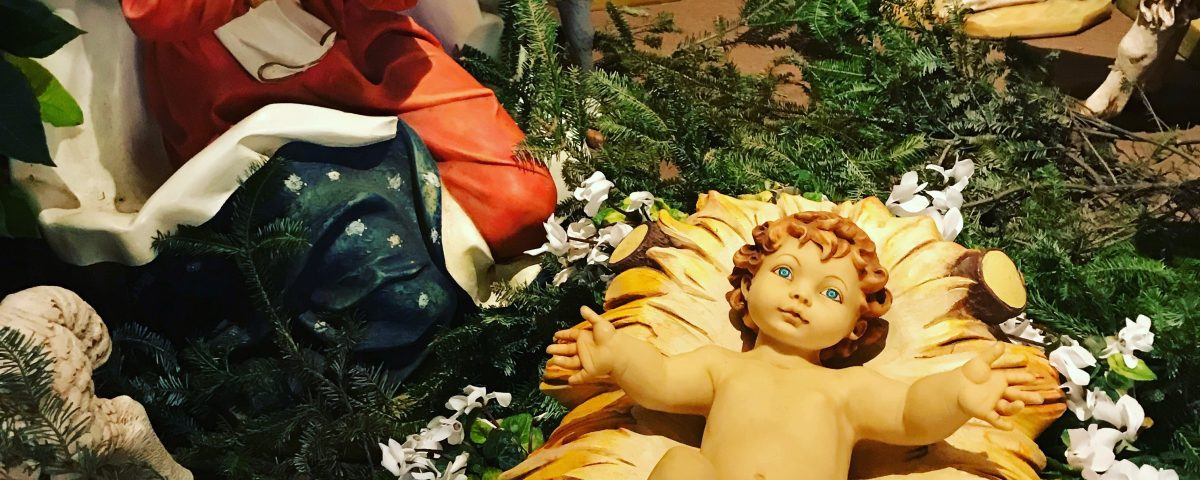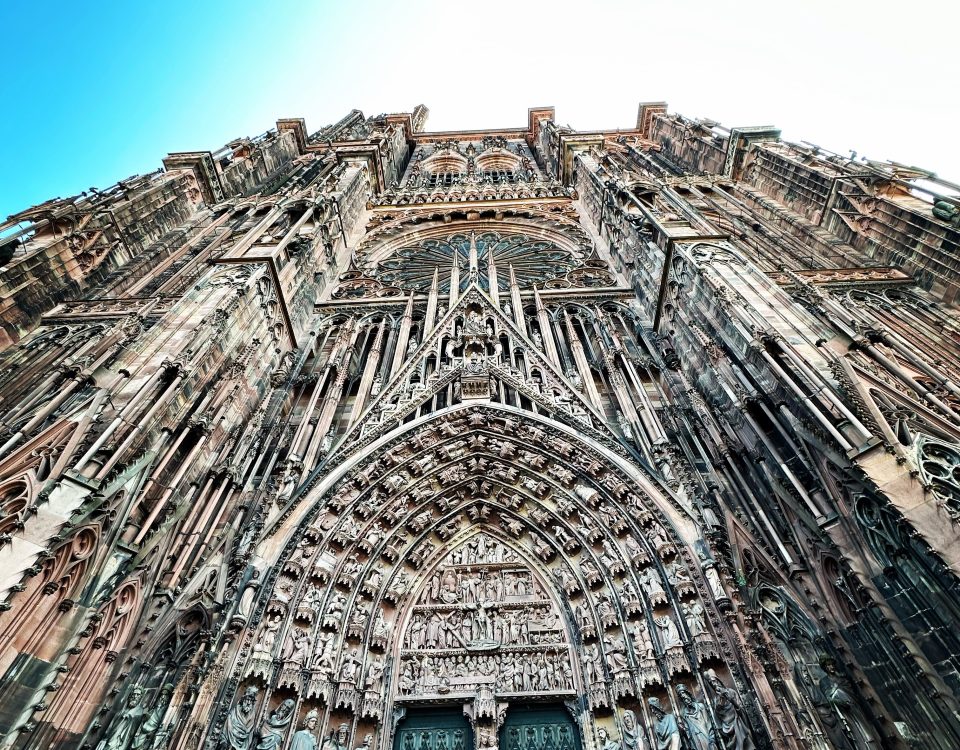Beautiful is God, the Word with God. He is beautiful in Heaven, beautiful on earth; beautiful in the womb; beautiful in His parents’ arms, beautiful in His miracles, beautiful in His sufferings; beautiful in inviting life, beautiful in not worrying about death, beautiful in giving His life, beautiful in taking it up again; He is beautiful on the cross, beautiful in the tomb, beautiful in Heaven. Listen to the song with understanding, and let not the weakness of the flesh distract your eyes from the splendor of His beauty.
These are Saint Augustine’s words. He believed, as did so many of our forefathers and foremothers in the faith, that to experience God was to experience beauty and that to experience beauty was to experience God, philokalia is the word theologians and saints use to name this manner of experiencing the divine. That is, in beauty—genuine beauty and not its marketed pretender—we can learn of the ways and even the being of God. As Simone Weil, that strange brilliant thinker, said, “the beauty of the world is Christ’s tender smile.” But this is no esoteric or sentimental thing. For us Christians, to speak of beauty, is to speak of human history and the history of God. It’s to speak of our history as well as the history of love.
But also of tragedy. “Let us make man in our image”—this was his primeval decree. “[M]ale and female he created them,” originally at peace with God. “Paradise” we named it, that short beautiful moment before our first sin when God walked with us in the cool evenings of that garden place. But then we turned away from him, and so to follow was “toil and trouble, pain and grief, death and all the wear and tear of the world.” He never stopped looking for us, though, this God who made us, even though we hid from him—“Where are you?” God asked. We were afraid, and so we hid ourselves. And ever since, as Paul said, “strangers…without hope and without God in the world.”
Yet the people of Abraham, our Jewish brothers and sisters, were given the covenant and the law, a people chosen and called back to the peace and communion which was lost in that ancient garden. And the whole of Hebrew history is just that—the history of a singular people struggling to regain that pristine unity with God, that unity without which we will never know peace or love. In the desert Moses built the “Tent of Meeting,” upon which the divine cloud would fall, and Moses would talk to God “face to face, as one man speaks to another.” Jeremiah dreamed of a day when the covenant would be written on the hearts of the people, when the Lord would say joyfully in truth, “I will be their God, and they shall be my people…All, from least to greatest, shall know me.” Ezekiel dreamed of a city called “The Lord is here,” where God would dwell again with us as he dwelt then with simple Adam and simple Eve—before sin came and everything became difficult. This was the dream—paradise regained—but it ended in disaster and failure again and again. The tent of meeting was taken down. Ezekiel never saw that divine city. Jeremiah knew only of exile and the wrath of God. They were dreams deferred, God always just out of reach. This is the tragedy of sacred history and the tragedy of the human condition.
Yet, one day in a little town in Galilee, an ordinary day, a young girl sat down (according to pious medieval custom) to do some sewing; an angel appears. How could she have known—this little girl—save by the light of her pondering, immaculate faith, that this ordinary moment was, as Paul called it, the “fullness of time,” her little boy was to be “‘Emmanuel,’ which means ‘God is with us,’” that there in Galilee, in that small place, was given the One, the new human being, the new Adam, the Christ, the beautiful one—the one who gave peace in healing, peace in speaking, peace even in dying and rising. Holding in her soul the mystery that this Jesus of Nazareth, the Christ, was the one hoped for, who would among the peaceable, through innocent suffering, shared among those who dare to call themselves brothers and sisters, destroy the hatreds of this world with a forgiveness even the righteous hardly understand: how could she have held the entire world’s love in her womb? Everyone hoped and prayed to find what Eve and Adam lost—hoping still if they had not lost hope for the God their hearts desired—and now the beautiful Christ is born, reigning in his lowliness, present to us. God is come again in the cool of the day searching for us as always, searching for you.
But why would God do this? Many, if they believe in God (if they have not given in to the foolishly fashionable metaphysics of atheism), have difficulty imagining just how God could take on the limitations of humanity, of space and time. Angels had to intervene for Joseph to get it. Why become a human being two millennia ago?
Well, I’m struggling to figure that out myself. But, at this point in my life, as far as I can tell, I think God became human, a particular man in a particular time, because that’s just how human love works. I fell in love with Alli, not with a wife. I love all children with a wholesome and general good will, but I love my children with that sort of visceral passion you’d not want to cross. You see what I’m saying? Human love seems to find its perfection in particular love. Human love, so to speak, requires a face—eyes, a smile, a voice. This is why, I think, God became human—so we would fall in love with him. Think, parents, of that wordless joy, the joy you take in simply looking at your child—hours I could spend just staring, finding in their faces the joy I want. Think of the joy of your little boy or your little girl, “Daddy!” “Mommy!” And now consider the joy of Mary, sharing that same pleasure—a mother adoring her child, a child his mother. But the child is God. Why did God become man? So he could rest under that loving gaze, that human visage, and find there that love he created but which he lost in that first sin, that ancient sin, when we hid from him, afraid and ashamed. This is how God begins to draw us close again. He enters into the gaze of our human loves and begs us to love him again. This is why the greatest question for you tonight is this: Do you know how to love? Do you even know what love is? Do you really know, or is what you think love merely cheap imitation in a cheap time? Do you know how to love? You won’t understand any of this unless you do.
Of the mystery of God, G. K. Chesterton wrote once, “our Father is younger than we.” This is the mystery we venerate this evening, the mystery of God’s tireless and ever-new love. This is the love in which we should hope. Some of you here have come for the love and honor of him; others half-hearted and apparently wiser than the rest might just be bemused by it all. And yet some here want the love I’ve just told you about—the love their souls beg for, the love without which they will be nothing. Now this Christmas is for all us, even the half-hearted, but it is especially for you—the lowly, the wounded, the loveless. This love is for you—have it. Merry Christmas. Some think little of it. Some think it’s the salvation of the whole world. Only love can tell the difference. Amen.
-Fr. Joshua J. Whitfield










